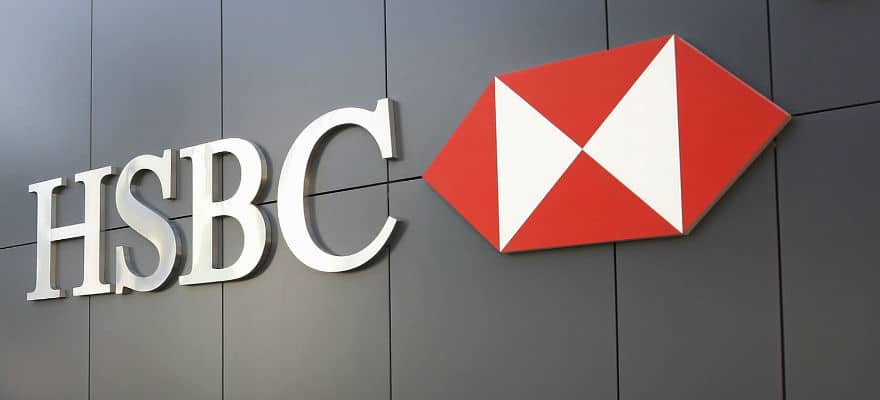HSBC Holdings Plc said Wednesday it has taken a $200 million floating loss in March after price of gold in New York and London has diverged by the most in four decades.
Like most asset classes, gold was affected by the unprecedented economic and financial market conditions in play around the globe. The bullion Liquidity was thinner in March due to logistics issue as the coronavirus has decimated supply chains across the world.
This has led to much wider spreads than usual while margin requirements increased on trading platforms run by banks and brokers, with the difference between prices in New York and London rising to as much as $70 an ounce.
HSBC further explains that in a rare occurrence the one-day loss breached its value-at-risk limits 12 times in March due to “unprecedented widening of the gold exchange-for-physical basis, reflecting Covid-19-related challenges in gold refining and transportation, which affected HSBC’s gold leasing and financing business and other gold hedging activity”.
The price gap disrupted trading in the bullions market and caused a plunge in liquidity of the contract used to Bridge the London and New York prices - known as an exchange-for-physical (EFP) contract. Traders worried they would be unable to move gold between the two key hubs.
Other players suffered from corona fallout
Earlier in April, HSBC parted ways with Andre Cronje, the chief operating officer of its global markets business, although it’s not clear if the huge loss had something to do with his exit . The departure of Cronje came a few weeks after the British lender said it had put its recently-announced job cuts plan on hold in order to limit the impact of the coronavirus crisis on its staff.
HSBC’s loss offers the latest evidence of how the fallout of the coronavirus outbreak had been spreading through the financial system over the last two months. As a result, banks, brokers, and other market participants tried to minimize their exposure to potential losses from wild swings across markets.
Interactive Brokers LLC said on Monday it has been forced to cover $104 million worth of its customers’ losses on April 20, the day when prices plunged below zero for the first time ever. The Greenwich, Connecticut-based broker reported earlier that it had suffered an aggregate provisionary loss of $88 million, but the figure swelled after IBKR made its final calculations for the first quarter.
The Caixin financial news outlet also reported that total losses from a crude oil product marketed to retail investors by the Bank of China could be more than $1.3 billion. The incident promoted the bank to ask US regulators to probe whether market manipulation, failed systems or computer programming failures was behind the unprecedented plunge in West Texas Intermediate, the U.S. crude benchmark.

















